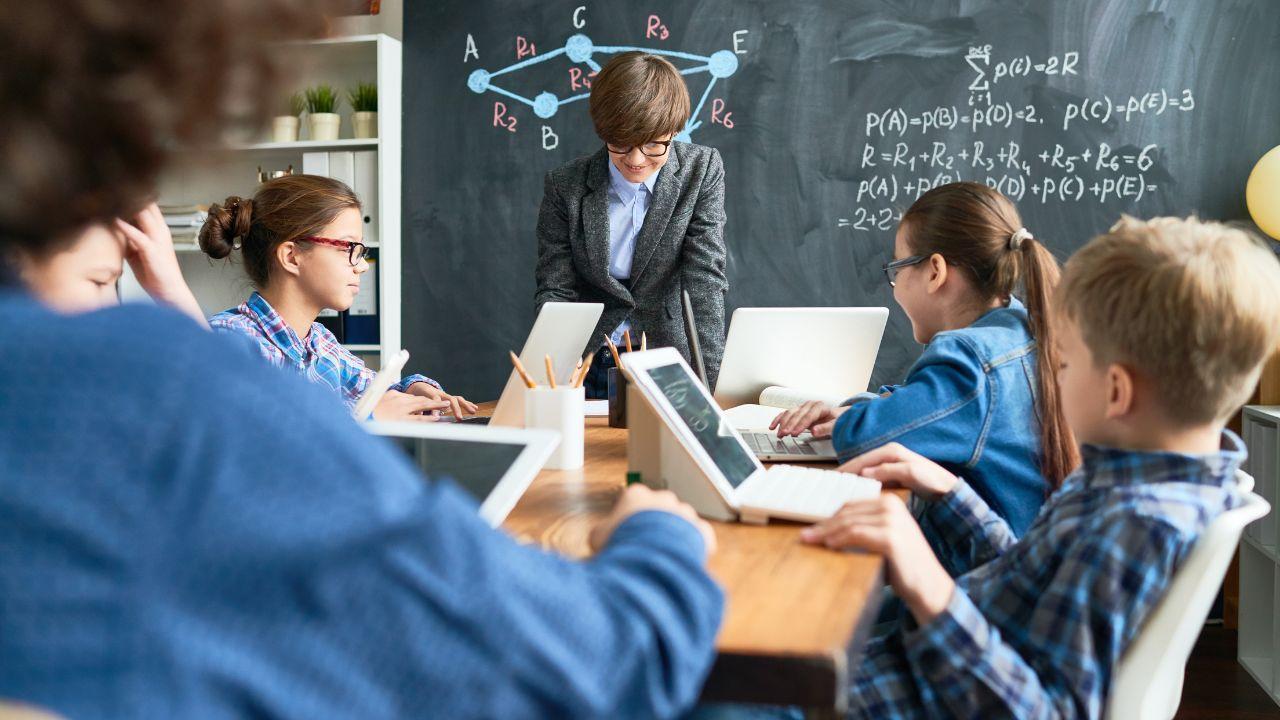
Education is undergoing a transformation. Today, the focus is not only on academic knowledge but also on developing skills that help students succeed in life. One of the most important aspects of this shift is Social-Emotional Learning (SEL). SEL goes beyond the traditional academic curriculum by emphasizing emotional intelligence, social skills, and self-regulation. This holistic approach equips students to manage their emotions, build positive relationships, and make responsible decisions. In this article, we will explore how Social-Emotional Learning impacts student success and why it is vital for the future of education.
Social-Emotional Learning (SEL) is an educational framework designed to help students develop essential skills for managing emotions, forming relationships, and making decisions. It focuses on five key areas: self-awareness, self-regulation, social awareness, relationship skills, and responsible decision-making. By nurturing these competencies, SEL helps students not only improve academically but also grow emotionally and socially. In classrooms that prioritize SEL, students are taught to recognize and manage their emotions, empathize with others, and develop strategies for resolving conflicts. These foundational skills contribute to a more positive learning environment and equip students to navigate life’s challenges effectively.
The connection between Social-Emotional Learning and student success is undeniable. Research consistently shows that students who engage in SEL programs tend to perform better academically and display stronger behavioral patterns. By focusing on emotional intelligence, SEL helps students develop the resilience needed to overcome academic and personal challenges. This improved emotional regulation leads to better concentration, higher motivation, and a greater willingness to engage in school activities. When students are emotionally supported, they are more likely to succeed both inside and outside the classroom. SEL helps students build the skills they need to excel academically, while also preparing them to be successful individuals in society.

One of the primary components of Social-Emotional Learning is emotional intelligence. Emotional intelligence is the ability to understand, manage, and express emotions in healthy ways. By fostering emotional intelligence, SEL enables students to handle difficult situations, such as stress, frustration, or peer pressure, with greater ease. Emotional intelligence also helps students develop stronger self-esteem and self-confidence, which are essential for achieving academic success. With a better understanding of their emotions, students can regulate their behavior, remain focused on tasks, and build stronger relationships with teachers and peers. This heightened emotional awareness directly contributes to a positive academic experience and improved performance.
A key benefit of Social-Emotional Learning is its ability to foster positive relationships among students. SEL encourages students to develop empathy, communication skills, and cooperation, which are essential for building healthy friendships and collaborative classroom environments. Students who practice SEL are more likely to treat others with kindness, respect differences, and work together to solve problems. These social skills are not only crucial in school but also later in life when students enter the workforce or engage in community activities. By helping students develop strong, supportive relationships, SEL creates an environment where everyone feels valued, and collaboration thrives. A positive social atmosphere enhances students' sense of belonging, which in turn leads to better academic outcomes.
While Social-Emotional Learning focuses on emotional and social development, its impact on academic performance cannot be overlooked. Numerous studies have shown that SEL programs lead to higher grades, improved test scores, and increased student engagement. When students are emotionally balanced, they are able to focus better, participate more actively in class, and retain information more effectively. Furthermore, SEL encourages self-discipline, motivation, and time management, all of which contribute to academic achievement. Students who are emotionally equipped to handle challenges in a healthy way are more likely to stay engaged in their studies, persist through difficulties, and succeed in their academic goals. Therefore, SEL is not just a supplementary tool—it is an essential component of educational success.
In addition to academic success, Social-Emotional Learning plays a crucial role in developing life skills that are important for personal growth and career success. SEL teaches students how to make responsible decisions, manage stress, resolve conflicts, and set and achieve goals. These skills are critical for navigating the complexities of adult life. SEL encourages students to reflect on their actions and consider the consequences of their decisions, which helps them make thoughtful choices in both their personal and academic lives. As a result, SEL fosters independence, problem-solving abilities, and decision-making skills that will serve students well into adulthood.
Classrooms where SEL is integrated tend to have fewer behavioral issues. Students who participate in Social-Emotional Learning programs are more likely to manage their emotions, regulate their behavior, and resolve conflicts in a calm and respectful manner. When students are equipped with tools to cope with frustration, anger, and stress, they are less likely to act out or disrupt class. This leads to a more peaceful and productive classroom environment, where students feel safe and supported. Teachers also benefit from SEL, as it provides strategies for managing classroom dynamics and preventing behavioral problems before they escalate. As a result, SEL creates a more conducive environment for learning, allowing all students to reach their full potential.
The impact of Social-Emotional Learning extends beyond students—it also benefits teachers and schools. Teachers who integrate SEL into their classrooms often report stronger relationships with students and a greater sense of job satisfaction. SEL creates a positive school culture where students and teachers work together toward common goals. This supportive environment leads to fewer disciplinary issues, better student behavior, and more meaningful interactions between teachers and students. Schools that prioritize SEL tend to have better overall outcomes, including lower dropout rates, higher graduation rates, and a more inclusive and empathetic community. As SEL continues to gain recognition, its integration into educational systems will likely become even more widespread, enhancing the overall quality of education.
As Social-Emotional Learning continues to prove its value in education, the future of SEL looks promising. More schools are adopting SEL programs, and educators are increasingly recognizing the importance of developing students’ emotional and social skills alongside their academic abilities. As the world becomes more interconnected, emotional intelligence will become even more critical for success in both personal and professional settings. By prioritizing SEL in education, we are ensuring that future generations are equipped with the skills needed to navigate the complexities of modern life. In the years to come, SEL will play a central role in shaping a more empathetic, responsible, and successful society.
Social-Emotional Learning (SEL) helps kids grow not only in school but also in life. Social-Emotional Learning teaches students how to understand and manage their feelings. It also helps them build good friendships, work well with others, and make smart choices. By learning Social-Emotional Learning, kids can feel more confident and do better in school. They also learn important skills like how to solve problems, handle stress, and treat others kindly. This makes students more successful at school and in life. Social-Emotional Learning is important because it helps kids become strong, happy, and successful people. It also helps teachers and schools by making classrooms calmer and easier to learn in. When Social-Emotional Learning is in schools, kids do better academically and grow into responsible, caring people. Social-Emotional Learning helps kids become the best versions of themselves, so they can succeed now and in the future.
The content provided in this article is for educational purposes only. The information shared does not reflect any official position or endorsement of specific programs or educational practices. All opinions expressed are based on research and insights related to the importance of Social-Emotional Learning in shaping student success. Readers are encouraged to explore further resources for a deeper understanding of SEL’s impact on education.
dxb news network does not take responsibility for any decisions or actions made based on the content provided here.
Social-Emotional Learning, Student Success, Emotional Intelligence, Self-awareness, Self-regulation, Relationship Skills, Social Skills, Academic Performance, Behavioral Issues, Personal Growth, Emotional Development, Positive Relationships, Classroom Environment, Life Skills, Teacher Support, School Culture, Conflict Resolution, Motivation, Resilience, Empathy
#trending #latest #SocialEmotionalLearning, #StudentSuccess, #EmotionalIntelligence, #SelfAwareness, #SelfRegulation, #RelationshipSkills, #SocialSkills, #AcademicPerformance, #BehavioralIssues, #PersonalGrowth, #EmotionalDevelopment, #PositiveRelationships, #ClassroomEnvironment, #LifeSkills, #TeacherSupport, #SchoolCulture, #ConflictResolution, #Motivation, #Resilience, #Empathy

Saturday’s fight at Barclays Center, New York, ended in a majority draw as judges split scores...Read More.

Simple Daily Habits to Improve your Lifestyle and Boost Well-Being...Read More.
 Cleveland Clinic Saves Vision for Patient with Rare Fungal Sinus Infection
Cleveland Clinic Saves Vision for Patient with Rare Fungal Sinus Infection
Cleveland Clinic Abu Dhabi saves woman’s eye from rare fungal sinusitis with surgery
 India vs New Zealand Champions Trophy 2025: Varun's 5-for seals 51-run win
India vs New Zealand Champions Trophy 2025: Varun's 5-for seals 51-run win
IND vs NZ: Varun's maiden ODI five-for helps India bowl NZ out for 205, win by 51 runs
 UP Woman Facing Death in UAE: Father Seeks MEA Help, Moves Delhi HC
UP Woman Facing Death in UAE: Father Seeks MEA Help, Moves Delhi HC
Shahzadi Khan, 33, from UP's Banda, faces execution in Abu Dhabi, UAE
 Theyab bin Mohamed bin Zayed mourns the loss of Ahmed Mohamed Al Suwaidi
Theyab bin Mohamed bin Zayed mourns the loss of Ahmed Mohamed Al Suwaidi
Sheikh Theyab bin Mohamed bin Zayed offers condolences on Ahmed Al Suwaidi’s passing
 India's Possible Playing XI vs New Zealand: Two Big Changes Expected
India's Possible Playing XI vs New Zealand: Two Big Changes Expected
India may make two changes in their XI for the final Group A game vs New Zealand
Gervonta Davis says hair product burned his eyes in fight vs Roach Jr.

Saturday’s fight at Barclays Center, New York, ended in a majority draw as judges split scores
10 Simple Ways to Improve Your Daily Lifestyle

Simple Daily Habits to Improve your Lifestyle and Boost Well-Being
KKR name new captain, vice-captain for IPL 2025: "We are confident..."

Kolkata Knight Riders named Ajinkya Rahane as captain and Venkatesh Iyer as vice-captain for IPL 2025
GEMS Education plans $300M investment to drive growth in the UAE

Dubai-based school group is exploring acquisitions to expand its education network
Dubai Police arrest 9 beggars on first day of Ramadan in crackdown effort

The arrest is part of Dubai Police’s ‘Fight Begging’ campaign to curb illegal begging
IDEX and NAVDEX 2025 set new records with highest visitor numbers

Major General Pilot Faris Khalaf Al Mazrouei said the strong participation at IDEX and NAVDEX 2025 highlights the UAE’s global reputation and progress in nation
UP woman on UAE death row executed on Feb 15, MEA tells Delhi HC

MEA said India will assist her family in traveling to Abu Dhabi for last rites on March 5
Cynthia Erivo misses EGOT title after Oscars 2025 loss; full details

Cynthia Erivo lost the Best Actress Oscar at the 97th Academy Awards, missing her chance to be the youngest EGOT winner at 38 as Mikey Madison won for Anora.
Renowned Kerala Doctor Found Dead at Farmhouse in Mysterious Circumstances

A 77-year-old top kidney transplant surgeon found hanging in his farmhouse
Joe Alwyn makes rare Oscars 2025 appearance after Taylor Swift split

Joe Alwyn surprised fans with a rare red carpet appearance at the 2025 Oscars. Read more details here
3001E, 30 Floor, Aspin Commercial Tower, Sheikh Zayed Road, Dubai, UAE
+971 52 602 2429
info@dxbnewsnetwork.com
© DNN. All Rights Reserved.